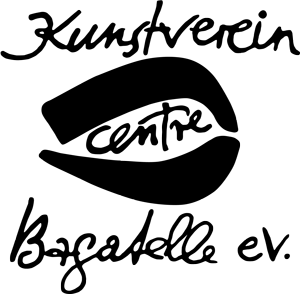Jakob Wirth
Vita
Jakob Wirth (*1991) ist ein freischaffender Künstler, der im öffentlichen Raum tätig ist und seine künstlerische Sprache prozesshaft und kontextabhängig gestaltet. Sein breites Spektrum umfasst Performance Art, Video, soziale Praxis und Parasitäre Kunst. Besonders fasziniert ihn die Verschmelzung des künstlerischen Schaffens mit politischen und alltäglichen Realitäten. Er zeichnet sich durch die Entdeckung unbekannter Systeme und das Infragestellen konventioneller Normen aus.
Seine künstlerische Arbeit wurde mit zahlreichen Auszeichnungen gewürdigt, darunter der Mart Stam Preis (2022), dem Deutschen Mobilitätspreis (2021) des Bundesministeriums und der Born to be Bauhaus Award (2020). Zudem gehört er zur Kunstsammlung der Moderne an und wurde für den Bundeskunstpreis nominiert. Des weiteren erhielt er Förderung und Stipendium vom Berliner Senat, von Bundesebene sowie international und absolvierte Residencies in Chicago, Santa Cruz (BOL), Koppenhagen, Madrid und Dresden.
In den vergangenen Jahren hat Jakob Wirth in renommierten Kunstinstitutionen und Ausstellungsorten ausgestellt, darunter der Kunstraum Bethanien, die re:publica, das Schillermuseum Weimar, das Museum Worpswede, dem Kunstverein Rosa Luxemburg Platz, auf der Chicago Architecture Biennial (US), die Alte Münze (Berlin), dem Eiermann Bau der IBA Thüringen, Kokkenet Kopenhagen (DNK), das Emergent Art Space San Francisco (US) und dem Museo Arte Contemporanea (BOL).
Zudem unterrichtet er als Gastdozent gelegentlich an der Bauhaus Universität Weimar, der Kunsthochschule Holbaek (DNK), der Hochschule Mannheim und der Agogis in Zürich (CH). Jakob Wirth gab zudem entsprechend seines künstlerischen Themas der Parasitären Kunst, den letzten Band der rennomierten Kunstzeitschrift Kunstforum International heraus. Außerdem ist er künstlerischer Leiter des unabhängigen Magazins „Parasite Art“, und seine Arbeiten werden
national und international in der Presse rezipiert, darunter die Süddeutsche Zeitung, ARTE, New City Chicago, MONOPOL, BILD, Sat1, Deutschlandradio Kultur, The Urban Activists, die taz, tagesspiegel, Bayerischer Rundfunk, Stern, Neon, Deutsche Welle, The Parliament. Jakob Wirth ist PhD Kandidat in Artistic Research an der Bauhaus Universität, wo er seinen Master in Kunst im öffentlichen Raum absolvierte, inklusive eines Aufenthalts an der School of the Art Institute of Chicago (SAIC). Zusätzlich erweiterte er seine Kenntnisse durch das Studium des Masters Raumstrategien an der Kunsthochschule Berlin Weißensee, sowie an den Kunsthochschulen Holbaek in Dänemark.
In seiner akademischen Ausbildung hat er ebenfalls Soziologie, Politik und Wirtschaft an der Zeppelin Universität Friedrichshafen sowie an der Universidad Rey Juan Carlos in Madrid studiert mit Aufenthalt in Santa Cruz de la Sierra, BOL. Seit Beginn seiner künstlerisch-aktivistischen Laufbahn arbeitet er intensiv mit Kollektiven zusammen. Zu seinen Gründungen zählen der Projekt- und Produktionsraum „Make-up e.V.“ in Berlin, das Kulturprojekt „Die Blaue Blume e.V.“ (FN) und das kunst-architektonische Kollektiv „Operation Himmelblick“ in Berlin. Darüber hinaus war er Mitglied der Kollektive „Arterias Urbanas“ (BOL), Kollektiv Raumstation“ (AU, DE) und „Stadt von Unten“ in Berlin und seine Praxis ist von dem tiefen Verständnis geprägt, dass Kollektives Arbeiten Voraussetzung für eine autonome und radikaler künstlerischen Praxis darstellt.
Penthaus à la Parasit
Guerilla Intervention. Berlin. 2019 - 2020. Collaboration with Alexander Zakharov. Winning the Born to be Bauhaus Award and part of the Kunstsammlung der Moderne. #top_down_appropriation #gentrification #housing_crisis #occupation
CONTEXT: Berlin, a city where the housing market is out of control. Over five years the price of rent has doubled and gentrification has become one of the most present topics in public discussions with expropriation being an alternative method for preventing the further dynamics of financialization of the
real estate market.
The Penthouse à la Parasit tries to resist this accelerating housing market. Instead of being expelled tothe periphery of the city, it goes up onto the roof. Before, the spaces on roofs were usually reserved forthe exclusive Penthouses. Now these places have been appropriated by the Penthaus à la Parasit as it
begins to recapture the houses from top to bottom.
An appropriation from above was realized by looking at the niches and gaps and inhabiting them. Thereforethe Penthaus à la Parasit began to experiment with the limits and norms of the building laws andownership. Thereby it challenges these set hierarchies of the housing market and the order of the city.
The privilege of freedom, farsightedness, centrality and the right to the city remain precarious as theyare constantly threatened and unstabilized.
The Penthaus creates a situation wherein the citizens can reclaim their power to act. To give people the opportunity to experience this, it opens its doors to everybody interested. People can apply to spend one night in the precarious penthouse under the term “DEMO-HOUSING” (look at the images 11-15).
The parasitic of the penthouse is represented by occupying the niches of the city, in the inversion of power relations and at the same time, by pointing out a room to maneuver as each system allows. It raises the question: To whom does the rooftop belong to? And who actually is the host and the parasite?
Are the residents parasites or the owners? Is it the Penthaus à la Parasite? Or is it in fact, the Property à la Parasite?
During the first period, the Penthaus à la Parasite stayed on a rooftop for seven weeks without permission. During this time, activities took place to enable the rooftop and to depict the possibility of using unused space.






